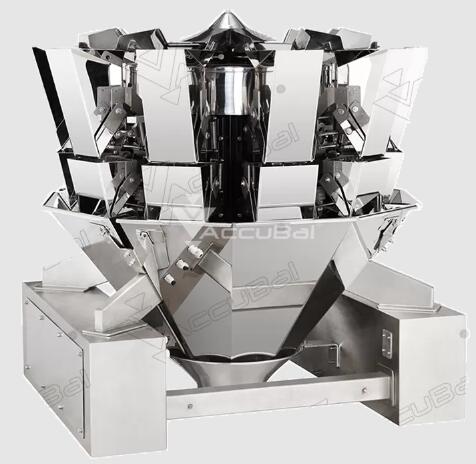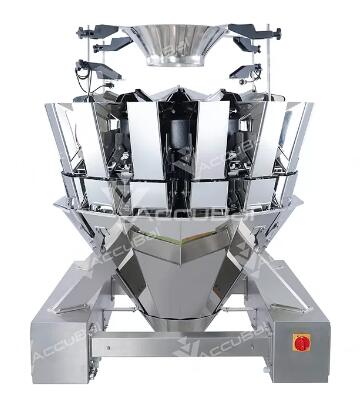How Does a Multi-Head Weigher Work?
Multi-head weighers (also known as combination scales) are the equipment standard for weighing applications in a variety of industries.
But for people who are evaluating their first packaging automation project, or even starting with a semi-automatic packaging system, the concept is something which might benefit from some explanation.
At a basic level, a multi-head weigher takes bulk product and weighs it into smaller increments according to the weights programmed into its software.
That bulk product is fed into the scale through the infeed funnel at the top, generally via an incline conveyor or a bucket elevator.
New Generation Economic 10 Heads Weigher
The top cone and feed pans vibrate, and gently move that product out from the center toward the buckets mounted around the edge of the scale. The system has various options and software settings which are adjusted for the product and fill weight.
For some applications, the scale will have dimpled steel contact surfaces, which provide less surface area for sticky products – such as gummies – to stick to. The sizes of the buckets also vary based on the product being weighed and the fill amount. While every application is different, bulkier product and/or larger containers generally leads to larger buckets (while the inverse is also true).
Each of the weigh buckets has its own load cell, which are constantly weighing the amount of product they contain, all while product continues to feed into them.
In order to reach the target weight, the software of the scale chooses the sum of a combination of buckets which add up to the correct amount.
The two main advantages of combination weighers are speed and accuracy.
New Generation Economic 14 Heads Weigher
In addition, a multi-head weigher does not face the same issues with weighing clumps that might be present in a linear scale.
The other main advantage is speed. Because each of the heads on the scale are constantly replenishing and weighing the amount of product they contain, they can move much faster than an operator using a manual scale.
The more weighing heads a scale has, the more options its computer has to create combinations which hit the correct amount; ultimately resulting in higher possible speeds and better accuracy.
Have a weighing need? Request a quote and we'll help you find the best weigher for your product.





